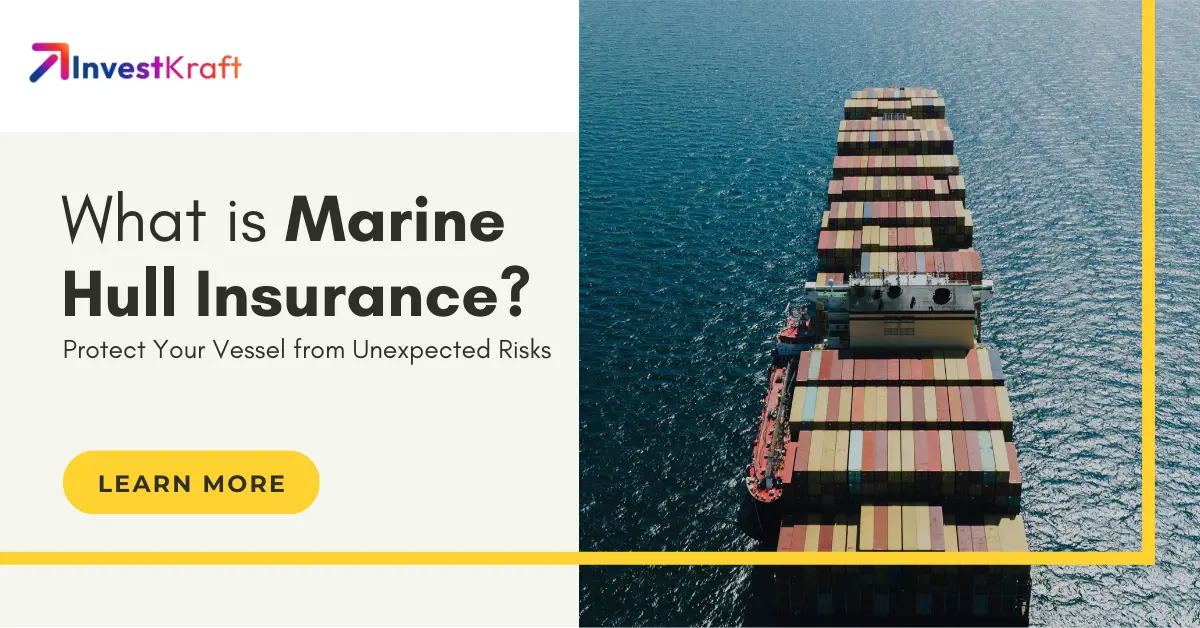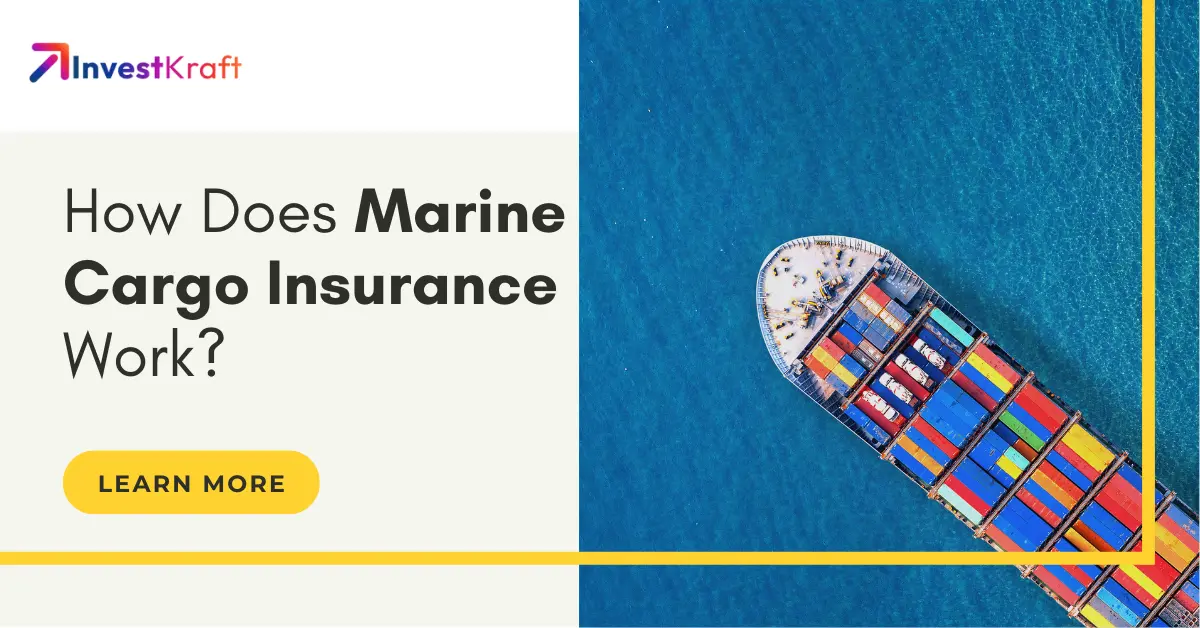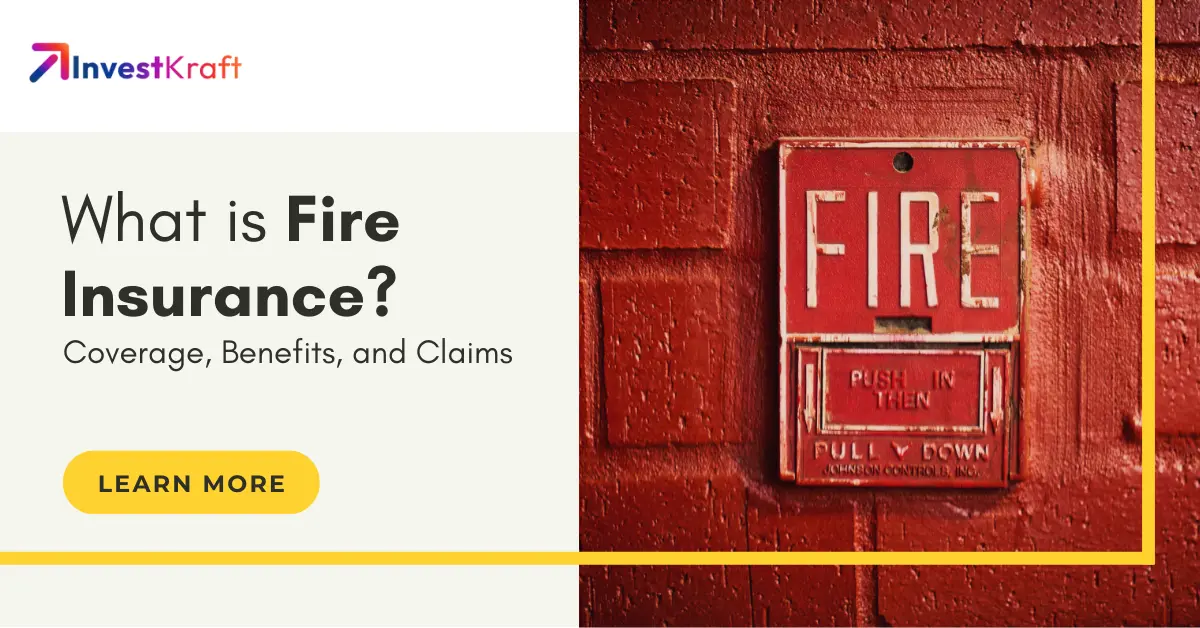Marine Hull Insurance Explained: Protect Your Vessel from Unexpected Risks

Did you know that the global maritime industry faces billions of dollars in losses annually due to unforeseen incidents at sea? For ship owners and operators, securing comprehensive marine hull insurance isn't just a choice—it's a necessity. This guide delves into the crucial role of marine hull insurance in protecting your vessel and business from maritime risks.
In this blog post, we have discussed different aspects of marine hull insurance, empowering businesses to make informed decisions when navigating the complexities of maritime risk management. Read on to gain knowledge and gather relevant information about the limitless importance of hull insurance.
What is Marine Hull Insurance?
Marine hull insurance, also known as marine vessel insurance, is a specialized insurance policy designed to provide financial coverage for a ship's physical structure (hull), machinery, and equipment. It safeguards against a multitude of perils encountered at sea, including:
- Collisions with other vessels or submerged objects
- Grounding (running aground)
- Stranding (getting stuck on a shore or reef)
- Fires and explosions
- Bad weather (storms, cyclones, etc.)
- Piracy and theft
- War and civil unrest
The extent of coverage offered by a marine hull insurance policy can be customized to meet the specific needs of a vessel and its operating environment. Businesses can opt for comprehensive coverage encompassing all the perils mentioned above, or tailor a policy to address specific risks.
Key Considerations When Choosing Marine Hull Insurance
When selecting a marine hull insurance policy, several crucial factors warrant careful consideration:
- Value of Your Vessels: The insured value of your vessel is a primary determinant of the premium cost. An accurate valuation is essential to ensure adequate coverage without unnecessary expenditure.
- Age and Condition of Your Vessel: Older vessels or those with a less-than-pristine condition may command higher premiums due to the perceived increased risk of damage.
- Operating Area of Your Vessel: The geographical area where your vessel operates significantly influences the premium cost. Regions with a higher incidence of maritime perils will typically translate to higher premiums.
- Your Risk Tolerance: Businesses can choose between comprehensive and customized coverage plans. Selecting broader coverage comes at a premium but offers more extensive protection.
- Reputation of the Insurance Provider: Opting for a reputable insurance company with a proven track record of prompt claims settlement is crucial.
Types of Coverage Under Marine Hull Insurance Explained
Marine Hull Insurance offers different coverage types, tailored to meet the needs of vessel owners and operators. Here's a breakdown of the three primary types of coverage:
1. Total Loss Only (TLO): This coverage applies when the insured vessel is completely lost or destroyed. It does not cover partial damages or repairable losses. For example, If a ship sinks due to a storm and is beyond recovery, the insurance will compensate for the total loss of the vessel.
Key Points:
- Ideal for vessels in high-risk environments where total loss is a primary concern.
- Generally, has a lower premium compared to comprehensive coverage.
2. Partial Loss: This covers damages to the vessel that can be repaired, ensuring the ship is restored to operational condition. For example, If a vessel's hull is damaged in a collision but can be repaired, this coverage will handle the costs.
Key Points:
- Suitable for vessels operating in moderately risky conditions.
- Ensures financial protection for repairable damages.
3. Comprehensive Policy: This is the most extensive coverage, combining both partial loss and total loss. It provides compensation for repairable damages as well as the complete loss of the vessel. For example, If a ship is damaged in one incident and completely lost in another, both situations are covered under this policy.
Key Points:
- Best suited for vessels with significant value or those frequently traversing high-risk routes.
- Offers peace of mind with all-encompassing protection.
Benefits of Marine Hull Insurance
Marine hull insurance offers a multitude of benefits for businesses operating in the maritime industry:
- Financial Protection: In the unfortunate event of a maritime incident, marine hull insurance safeguards businesses from bearing the brunt of the financial burden associated with vessel repairs or replacements. This financial security is vital for ensuring business continuity and mitigating the risk of bankruptcy.
- Peace of Mind: The knowledge that your vessel is insured fosters peace of mind for ship owners and operators. By mitigating financial risks, marine hull insurance allows businesses to focus on their core operations with greater confidence.
- Enhanced Credibility: Possessing marine hull insurance can enhance a business's credibility in the eyes of potential partners, lenders, and investors. It demonstrates a commitment to responsible risk management practices, which can be advantageous when securing financing or contracts.
- Compliance with Regulations: In some countries, marine hull insurance is mandatory for commercial vessels operating above a certain tonnage limit. Owning a valid marine hull insurance policy ensures compliance with maritime regulations and avoids potential penalties.
Example for a Better Understanding of the Insurance
Here is an example of a fictional incident in a Chennai-based marine hull insurance company:
The monsoon season in the Bay of Bengal was particularly fierce that year. M/V "Indrani," a sturdy cargo ship owned by "Southern Seas Shipping," a prominent Chennai-based company, was laden with a diverse cargo of consumer goods bound for Colombo, Sri Lanka. Captain Rajeev, a seasoned mariner with decades of experience, navigated the ship cautiously, ever mindful of the treacherous weather reports.
However, The Indrani ship was sailing in the southern seas when a terrible storm hit. The wind blew very hard, creating huge waves. These waves crashed over the ship, and it started to fill with water. The crew tried their best to save the ship, but the storm was too strong. Finally, a giant wave, bigger than the ship, hit it very hard. The ship was damaged badly and started to sink. Captain Rajeev knew the ship was going to sink, so he sadly ordered the crew to leave the ship. Miraculously, all crew members were rescued by a passing fishing vessel. However, the Indrani, along with its valuable cargo, vanished beneath the raging waves. Back in Chennai, the news of Indrani's demise sent shockwaves through Southern Seas Shipping. The loss was substantial, both in terms of the vessel itself and the valuable cargo. However, the company had the foresight to maintain comprehensive marine hull insurance coverage with a reputable Chennai-based insurer.
The insurance claim process was initiated promptly. The company diligently submitted all necessary documentation, including the voyage log, weather reports, and rescue reports. The insurance surveyors, after meticulous investigation, concluded that the loss was indeed due to an unpreventable act of nature – the severe storm.
Based on the assessment, Southern Seas Shipping received substantial compensation from the insurance company. The timely payout enabled the company to mitigate the financial impact of the tragic incident, allowing them to continue their operations and rebuild their fleet.
Note: This is a fictional narrative. Actual marine insurance claims involve intricate legal and technical procedures.
What are the Factors Influencing Marine Hull Insurance Premiums?
Do you know that premiums for marine hull insurance vary depending on various factors? Below listed are a few for your information:
- Type and Size of the Vessel: Larger and more complex vessels typically attract higher premiums.
- Age of the Vessel: Older vessels may have higher premiums due to increased risks of mechanical failures.
- Operational Area: Vessels operating in high-risk areas, such as piracy-prone regions, may have higher premiums.
- Claim History: A history of frequent claims can lead to increased premium rates.
- Coverage Type: The extent and type of coverage selected also impact the premium amount.
How to Choose the Right Marine Hull Insurance?
Selecting the right policy can be overwhelming. The below-discussed tips can help you make the correct decision based on the gathered information:
- Assess Your Needs: Determine the specific risks associated with your vessel and operations.
- Compare Policies: Evaluate policies from different insurers to identify the best coverage at a competitive price.
- Check the Insurer’s Reputation: Choose a reliable insurance provider with a strong track record in marine insurance.
- Review Policy Terms: Read the fine print to understand inclusions, exclusions, and claim procedures.
- Seek Expert Advice: Consult with marine insurance experts or brokers for personalized recommendations.
Claim Process for Marine Hull Insurance
Filing a claim under marine hull insurance involves the following steps:
- Report the Incident: Notify your insurer immediately about the loss or damage.
- Document the Damage: Provide detailed reports, including photographs and repair estimates.
- Submit Required Documents: Include the insurance policy, incident report, and other necessary paperwork.
- Survey and Assessment: The insurer may appoint a surveyor to assess the damage.
- Claim Settlement: Upon verification, the insurer will process and settle the claim as per the policy terms
Additional Tips to Consider for Better Experience
- Regularly review and update your marine hull insurance policy to reflect any changes in your vessel's value, operating area, or risk profile.
- Maintain a comprehensive maintenance log for your vessel to demonstrate a commitment to preventative measures, which can potentially influence premiums positively.
- Develop a strong relationship with your insurance provider to ensure clear communication and efficient claims processing in the event of a maritime incident.
Concluding Thought
Marine hull insurance is an indispensable tool for businesses navigating the complexities of maritime operations. By understanding its benefits, coverage options, and key selection factors, businesses can make informed decisions to safeguard their vessels and ensure their financial well-being.
By following these guidelines, businesses can leverage marine hull insurance to navigate the maritime landscape with greater confidence and financial security.
FAQs: Marine Hull Insurance
Q1: What exactly does "hull" refer to in marine hull insurance?
The "hull" encompasses the entire physical structure of the vessel, including its framework, outer shell, and all attached fixtures like masts, rigging, and external fittings.
Q2: Does marine hull insurance cover damage caused by crew negligence?
Generally, yes. However, the specific coverage for crew negligence can vary depending on the policy terms. Some policies may have exclusions or limitations for damages caused by gross negligence.
Q3: Are there any exclusions typically found in marine hull insurance policies?
Common exclusions include wear and tear, gradual deterioration, inherent vice (pre-existing conditions), and losses due to war or acts of terrorism (unless specifically covered by an extension).
Q4: How does the age of a vessel impact its insurance premium?
Older vessels generally have higher premiums due to increased risks of mechanical breakdowns, structural weaknesses, and obsolescence.
Q5: What is the difference between "broad form" and "named perils" coverage in marine hull insurance?
Broad form coverage provides protection against a wide range of perils, while named perils coverage only covers losses specifically listed in the policy. The broad form offers greater protection but typically comes with a higher premium.
Q6: How often should I review my marine hull insurance policy?
It's advisable to review your policy annually, or whenever there are significant changes to your vessel's operations, value, or the maritime environment in which it operates.
Q7: What steps should I take if I need to file a claim under my marine hull insurance?
Immediately notify your insurance provider of the incident. Gather all relevant documentation, including photographs, witness statements, and repair estimates. Cooperate fully with the insurance company's investigation.
Q8: Can I obtain marine hull insurance for a newly constructed vessel?
Yes, marine hull insurance can be obtained for vessels under construction. However, the coverage may be subject to certain limitations and exclusions during the construction phase.
Q9: Does marine hull insurance cover losses incurred due to pollution?
Coverage for pollution-related losses can vary depending on the specific policy and the nature of the pollution incident. Some policies may include pollution liability coverage as an optional extension.
Q10: What are some ways to potentially reduce my marine hull insurance premiums?
Implementing robust safety and maintenance procedures, installing anti-theft devices, and maintaining a clean and well-maintained vessel can all help to reduce your premiums.

Author: Rajesh Mishra
Rajesh Mishra is a professional and multilingual writer with over 12+ years of versatile experience in content writing.
He has crafted compelling narratives across a diverse array of industries, including BFSI, fintech, IT, pharmaceuticals, e-commerce, education, fashion, and more. He is a commerce graduate from Mumbai University. His strong academic foundation and passion for storytelling enable him to engage audiences and deliver impactful content.
He is adept at transforming complex concepts into clear, relatable language, making his work accessible to both, industry professionals and everyday readers. He thrives in dynamic environments, leveraging his extensive knowledge to create articles, blogs, whitepapers, and marketing materials that resonate with target audiences. Driven by a commitment to excellence and a keen eye for detail, Rajesh Mishra continuously explores emerging trends and technologies, ensuring his content remains relevant and thought-provoking.
















